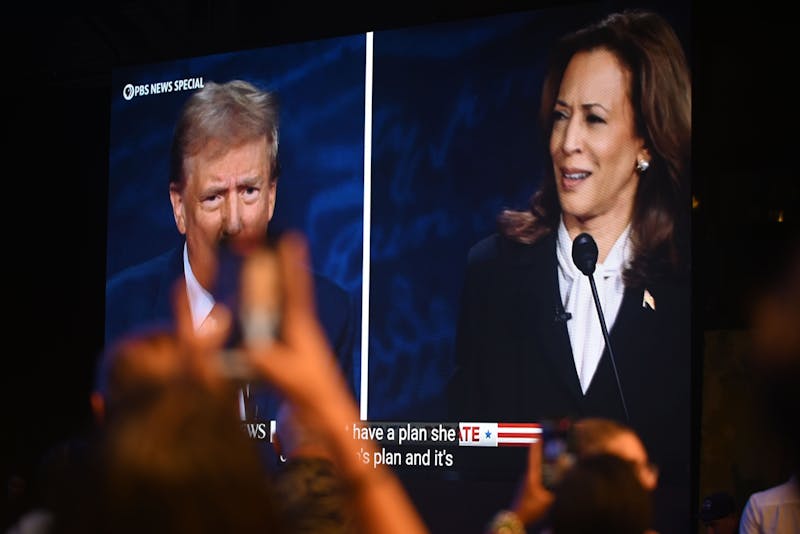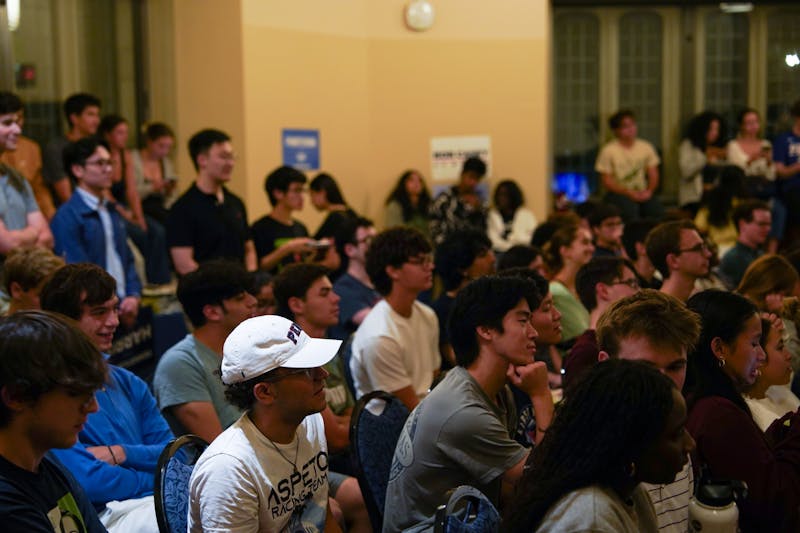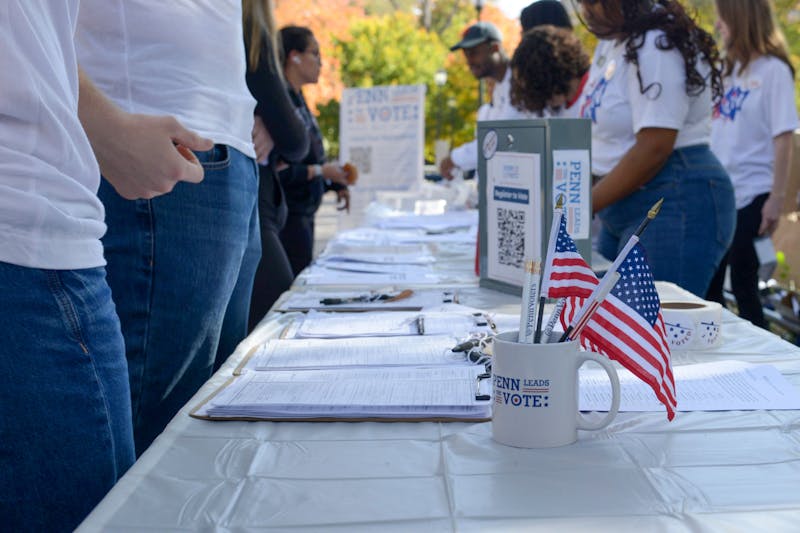
Penn professors have adjusted the way they teach their classes and are providing additional support to students in the wake of Donald Trump's victory in the 2024 presidential election.
After 1968 Wharton graduate and former President Donald Trump was named the winner of the 2024 presidential election early Wednesday morning, Penn professors acted quickly — canceling classes, offering resources, and adjusting exam schedules. Professors who spoke with The Daily Pennsylvanian expressed concern for how members of the Penn community will be affected by another Trump presidency.
Economics professor Anne Duchene told the DP that in advance of the election, she had made attendance optional in her ECON 0100 classes, anticipating that election results would take more than one night to declare.
Duchene said she hoped providing the option to attend lecture would provide a sense of normalcy for students.
“I thought maybe, [having an optional lecture] can help everyone pretend it’s business as usual, instead of just looking at your screens constantly, trying to understand what [happened],” she said.
After waking up to a “very red map,” Duchene opened her lecture with a short poll asking students how they were feeling.
“I just wanted to acknowledge the wide variety of emotions that were in the classroom and also to respect these emotions,” she said. “It's really hard to know how the students are, what the students are really thinking, but my interpretation is that they wanted to have a normal class.”
Neuroscience professor Michael Kaplan also preemptively cancelled his Wednesday classes for his own well-being and due to his strict policy against “politicking from the podium.” He explained that it seemed "ridiculous" to consider lecturing without discussing the "elephant in the room."
Anthropology professor Caroline Jones rescheduled an exam after “a slew of emails” from students describing concern about preparing for an exam set to take place right after the election results were announced.
Jones — who teaches "Human Origins, Evolution, and Diversity" — wrote in a Nov. 6 Canvas post obtained by the DP that students were concerned about the impact election results would have on their exam preparation and wrote that she wanted to “recognize and validate the disappointment many of you expressed.”
Associate professor of History Brent Cebul made class attendance optional and rearranged the class syllabus to facilitate discussion on the election results.
“I just wanted to give students room to share their thoughts and feelings about the election — no matter what side of the aisle they fall on,” he wrote in a statement to the DP. “We had a great conversation — a full [1 hour and 15] minutes.”
Some Penn professors elected to adhere to mandatory class policies, despite the election results.
Political Science professor Ian Lustick explained that he did not cancel classes because “students deserve normalcy," explaining that “classes, in particular, are practically sacred spaces.”
When teaching other political science courses, Political Science professor Matthew Levendusky said that he typically allocates class time after an election to discuss the results.
However, Levendusky — who is currently teaching "Introduction to Data Science" — said he did not set aside time on Wednesday to discuss results because they are “little bit less relevant to the day-to-day of the class.”
Levendusky said that a contributor to Trump's victory was the way in which Vice President Kamala Harris — who some voters viewed as a stand-in for Biden — did not represent a change from the Biden administration.
“She represented a change that was hard to pull off when you're part of the incumbent administration,” he said. “She lost because of it.”
Levendusky was ultimately “not surprised” that Trump won the election, especially after polling gave him a slight lead over Harris ahead of the election.
Political Science professor Guy Grossman, who teaches Introduction to Comparative Politics, expressed a similar sentiment. He described the Harris campaign as “near-flawless” but added that incumbents “around the world” have been losing elections in the past two years.
Lustick, who is currently teaching International Politics and the Arab-Israeli Conflict, cited the Israel-Hamas war as a key issue that contributed to Harris’ loss on Nov. 6.
“I do think it damaged the Democratic party’s prospects," Lustick said. "So many young people, progressives, Arabs, and Muslims are horrified at what is, frankly, an old-fashioned Biden policy on Israel,” he explained, adding that Harris’ refusal to “break from Biden” on this key issue likely led to a loss of progressive voters.
Political Science professor Rogers Smith — a former associate dean of the social sciences at Penn — considered the impact that the Trump-Vance administration could have on Penn given the immense political scrutiny has faced in the last year.
“Elon Musk and associates of Donald Trump will reinforce those conservative political pressures on the University,” Smith said. “The faculty, at least, and probably many students … have reason to be concerned about whether conservative pressures on the university will increase after the election.”
Associate professor of Communication Jessa Lingel told the DP she would be "very disappointed" if Penn chose to celebrate Trump's presidency "simply because he is an alum."
Lingel added that her main concern in the wake of Trump's reelection is "people feeling safe and being safe."
"I want to make sure there are spaces on campus and in Philadelphia where queer people, feminist people, trans people, can come together and find the support that they need after Trump’s reelection," she said.
Several other professors also expressed concern for marginalized members of the Penn community and said they hope to discuss a path forward with students in the coming weeks.
“I am engaged in a lot of conversations with former students, with family and friends, because a lot of us are trying to figure out how to respond to the election results that most of us regard with great concern,” Smith said.
Levendusky described campus unity as the path forward for the Penn community.
“I think everyone will have to figure out how they can come together, and move forward as a community and as a University,” Levendusky said.
The Daily Pennsylvanian is an independent, student-run newspaper. Please consider making a donation to support the coverage that shapes the University. Your generosity ensures a future of strong journalism at Penn.
Donate












